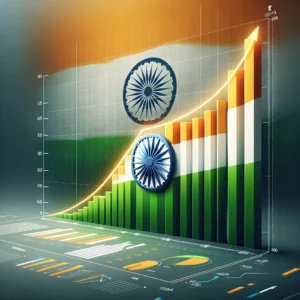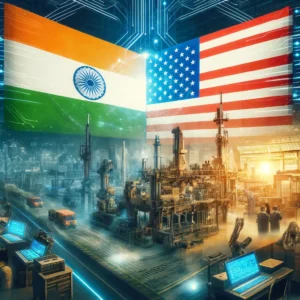Potential for US Investors in Indian Startups
The startup ecosystem in India is flourishing, rapidly becoming a hotbed for innovation and entrepreneurship. Among the various sectors driving this growth, manufacturing startups stand out as significant contributors to India’s economic landscape. These startups are not only boosting production capabilities but also fostering technological advancements and sustainable practices. For US entrepreneurs, this burgeoning market presents an array of opportunities ripe for exploration and investment. This blog aims to shed light on the potential synergies between US entrepreneurs and India’s manufacturing startups, offering insights into why India is an ideal destination for manufacturing ventures.
The Rise of Manufacturing Startups in India
India has seen a remarkable surge in manufacturing startups over the past decade. This growth is fueled by a combination of favorable government policies, increased foreign investment, and a growing emphasis on innovation. Key sectors where manufacturing startups are thriving include electronics, automotive, pharmaceuticals, renewable energy, and textiles.
Government initiatives such as “Make in India” and the introduction of Special Economic Zones (SEZs) have provided significant impetus to the manufacturing sector. These policies offer incentives like tax breaks, simplified regulations, and infrastructural support, creating an environment conducive to startup growth.
Why India is Attractive for US Entrepreneurs?
Cost Advantages
One of the most compelling reasons for US entrepreneurs to consider manufacturing in India is the cost advantage. Labor costs in India are substantially lower than in the United States, leading to reduced operational expenses. This cost-efficiency extends to raw materials and overall production costs, making India a financially attractive manufacturing hub.
Skilled Workforce
India boasts a large pool of skilled and semi-skilled labor. The country’s emphasis on education and vocational training ensures a steady supply of workers proficient in various manufacturing processes. This skilled workforce is instrumental in maintaining high productivity and quality standards in manufacturing operations.
Market Potential
India’s vast and growing consumer base presents immense market potential. The rising middle class is driving demand for a wide range of products, from consumer electronics to automobiles. For US entrepreneurs, this means access to a large and dynamic market ready for innovative and high-quality products.
Innovation and Technology
The collaboration between US technological expertise and Indian manufacturing capabilities can lead to significant innovations. India is increasingly becoming a hub for tech-enabled manufacturing, with startups focusing on areas such as IoT, AI, and advanced automation. These technological advancements are transforming traditional manufacturing processes, making them more efficient and competitive.

Key Opportunities in India’s Manufacturing Startups
Electronics and Hardware
The demand for electronics and IoT devices is skyrocketing in India. Startups in this sector are focusing on innovative solutions and smart devices, catering to both domestic and international markets. The government’s push for digitalization further supports growth in this area.
Automotive and Electric Vehicles
India’s automotive sector, particularly the electric vehicle (EV) market, is expanding rapidly. Manufacturing startups are playing a crucial role in developing EV components and vehicles. This growth is supported by government policies promoting clean energy and sustainability.
Pharmaceuticals and Biotechnology
India is a global leader in pharmaceuticals and biotechnology. Startups in this sector are at the forefront of drug manufacturing and biotech innovations, contributing to global health solutions. The COVID-19 pandemic has highlighted India’s capabilities in producing vaccines and essential medicines.
Renewable Energy
With a strong focus on sustainable development, India’s renewable energy sector is burgeoning. Startups are engaged in manufacturing components for solar and wind energy systems. These efforts are aligned with global trends towards cleaner energy sources.
Textiles and Apparel
India has a rich heritage in textiles and is now integrating technology to enhance production. Startups are exploring sustainable and tech-enabled textile manufacturing, catering to global demand for eco-friendly apparel.
Successful Case Studies
Example 1: Ola Electric
Ola Electric is revolutionizing the EV market in India with its innovative electric scooters. The company’s focus on sustainability and cutting-edge technology has attracted significant investment, including from US investors. Ola Electric’s success exemplifies the potential of India’s manufacturing startups in the EV sector.
Example 2: Ather Energy
Ather Energy, another prominent player in the electric scooter market, has leveraged US investments to scale its operations. The company’s focus on advanced design and technology has positioned it as a leader in India’s burgeoning EV industry.
Example 3: Bharat Biotech
Bharat Biotech has made significant contributions to global health through its innovative biotech solutions. The company’s development of the Covaxin vaccine during the COVID-19 pandemic showcased India’s capabilities in pharmaceutical manufacturing and highlighted opportunities for international collaboration.
Strategies for US Entrepreneurs to Enter India’s Manufacturing Startup Ecosystem
Market Research
Conducting thorough market research is crucial for understanding the dynamics of the Indian market. Entrepreneurs should identify consumer needs, market demand, and competitive landscape to make informed decisions.
Local Partnerships
Building strategic alliances with local startups and firms can provide valuable market insights and facilitate smoother market entry. These partnerships can help navigate the complexities of the Indian business environment.
Investment Opportunities
Identifying and investing in high-potential startups is key to leveraging opportunities in India’s manufacturing sector. US entrepreneurs should look for startups with innovative solutions and scalable business models.
Regulatory Compliance
Navigating the legal landscape and ensuring compliance with local regulations is essential. Entrepreneurs should engage with local legal experts to understand and adhere to regulatory requirements.
Challenges and Considerations
Regulatory Hurdles
Understanding and overcoming bureaucratic challenges can be complex. Entrepreneurs need to be well-versed in local regulations and seek guidance from experts to ensure smooth operations.
Cultural Differences
Navigating cultural nuances in business practices is important for building strong relationships. Entrepreneurs should invest time in understanding local customs and business etiquette.
Supply Chain Management
Addressing logistical challenges in manufacturing requires efficient supply chain management. Entrepreneurs should focus on building robust supply chains to ensure timely delivery of materials and products.
Intellectual Property Protection
Safeguarding innovations and intellectual property is critical. Entrepreneurs should take necessary steps to protect their IP and prevent infringement.
Future Prospects and Trends
Technological Advancements
The role of AI, IoT, and Industry 4.0 in manufacturing startups is growing. These technologies are driving efficiency and innovation, making India an attractive destination for tech-enabled manufacturing.
Sustainable Manufacturing
There is a growing emphasis on eco-friendly manufacturing practices. Startups focusing on sustainability are gaining traction, aligning with global trends towards green production.
Policy Changes
Anticipated government policies aimed at boosting manufacturing startups could create new opportunities. Entrepreneurs should stay informed about policy developments to leverage these changes.
Global Market Integration
Indian startups are increasingly becoming integrated into the global supply chain. This presents opportunities for US entrepreneurs to collaborate and tap into international markets.
Conclusion
India’s manufacturing startups offer immense opportunities for US entrepreneurs. By leveraging cost advantages, a skilled workforce, and a supportive business environment, US businesses can achieve significant growth. Exploring and investing in India’s dynamic startup ecosystem can lead to mutual growth and innovation, driving success in the global market.
Ready to explore manufacturing opportunities in India? Avenue Consumer Brands specializes in helping US entrepreneurs establish and grow their manufacturing businesses in India. With our expertise in local partnerships, market research, and regulatory compliance, we provide comprehensive support to ensure your success. Contact us today to unlock the potential of the Indian market and download our detailed guide on investing in India’s manufacturing startups!
FAQs
- Why should US entrepreneurs consider investing in India’s manufacturing startups?
India offers cost-effective production, a skilled workforce, and a rapidly growing consumer market, making it an attractive destination for manufacturing investments.
- What are the key sectors for manufacturing startups in India?
Key sectors include electronics and hardware, automotive and electric vehicles, pharmaceuticals and biotechnology, renewable energy, and textiles and apparel.
- How can US entrepreneurs navigate regulatory challenges in India?
Partnering with local legal experts and conducting thorough market research can help US entrepreneurs understand and comply with Indian regulations.
- What role does technology play in India’s manufacturing startups?
Advanced technologies like AI, IoT, and automation are driving efficiency and innovation, positioning India’s manufacturing startups at the forefront of Industry 4.0.

